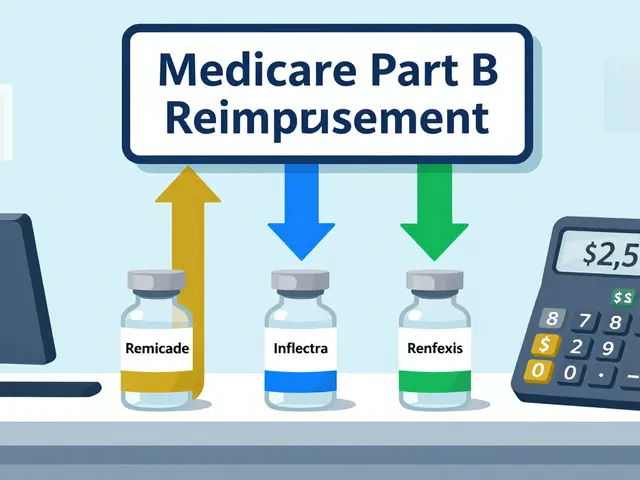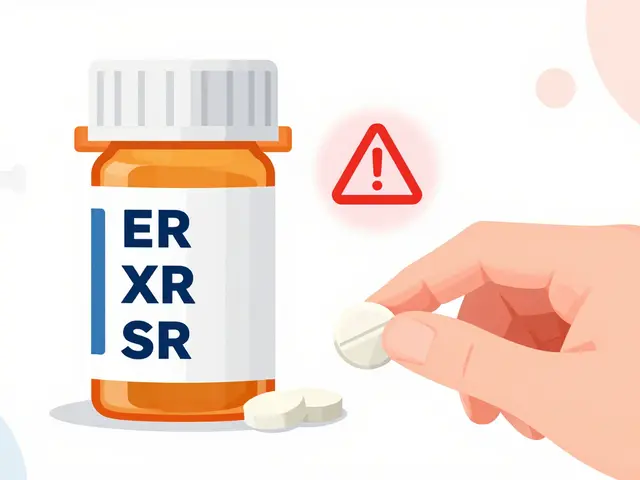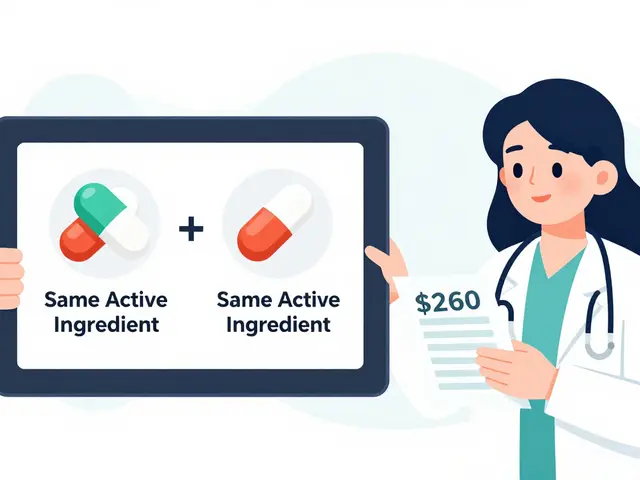Ulcer Prevention: Simple Steps to Keep Your Stomach Healthy
Ever wonder why some people get stomach ulcers while others don’t? Most of the time it’s not luck – it’s about what you eat, how you handle stress, and a few everyday habits. This guide gives you clear, hands‑on advice you can start using today to lower your ulcer risk.
Common Triggers that Invite Ulcers
First, know the culprits. Heavy use of NSAID pain relievers (like ibuprofen or naproxen) can erode the stomach lining. Smoking adds acid and slows healing. Alcohol, especially in big doses, irritates the gut. And a diet high in spicy foods, caffeine, or fried meals can make symptoms flare up.
Helicobacter pylori infection is another big player. It’s a bacteria that lives in the stomach and often goes unnoticed until it creates an ulcer. If you’ve had recurring stomach pain, a simple breath test can confirm it.
Practical Tips to Protect Your Stomach
1. Choose gentler pain relief. If you need an anti‑inflammatory, talk to your doctor about acetaminophen or a prescription that’s easier on the gut.
2. Eat smaller, regular meals. Large meals dump a lot of acid at once. Aim for five‑to‑six modest portions spread throughout the day.
3. Load up on ulcer‑friendly foods. Oatmeal, bananas, yogurt, and leafy greens help buffer acid and soothe the lining. Probiotic‑rich foods (like kefir) also keep H. pylori in check.
4. Limit coffee, tea, and sodas. Even decaf can stimulate acid. Cut back gradually to avoid withdrawal headaches.
5. Stay hydrated. Water dilutes stomach acid and supports digestion. Aim for eight glasses a day, but don’t gulp them all at once.
6. Quit smoking and curb alcohol. Both habits raise acid production and slow ulcer healing. If you need help, ask your doctor about nicotine patches or counseling.
7. Manage stress. Chronic stress spikes cortisol, which can increase stomach acid. Simple techniques—deep breathing, short walks, or a 10‑minute meditation—make a real difference.
8. Get tested for H. pylori. If you’re positive, a short course of antibiotics and acid‑suppressing meds usually clears the infection and prevents future ulcers.
9. Watch for warning signs. Burning pain that eases with food, unexplained weight loss, or dark stools deserve a doctor’s look right away. Early detection stops an ulcer from getting worse.
Remember, ulcer prevention isn’t about one big change; it’s a series of small, consistent moves. Swap that late‑night pizza for a bowl of oatmeal, pick a short walk instead of a smoke break, and ask your pharmacist about ulcer‑friendly pain relievers. Over time, these choices add up and keep your stomach lining strong.
By knowing the triggers and applying these everyday habits, you can lower the odds of a painful ulcer and enjoy meals without fear. Your gut will thank you, and you’ll feel more energetic for everything else you love to do.
When it comes to preventing ulcers and reducing stomach acid, Cytotec isn't the only option available in 2024. There are several effective alternatives including Omeprazole, Famotidine, and Pantoprazole that work to reduce or manage stomach acid in different ways. Each alternative comes with its own benefits and downsides, such as varying side effects and ease of use. It's important to consider these factors when choosing the best medication for individual needs. The right choice depends on individual circumstances, tolerance levels, and medical history.
Categories
Archives
Recent-posts
Best Substitutes for Coumadin: Comparing DOACs, Rivaroxaban, Apixaban & Lifestyle Changes
Jul, 28 2025



 Medications
Medications




